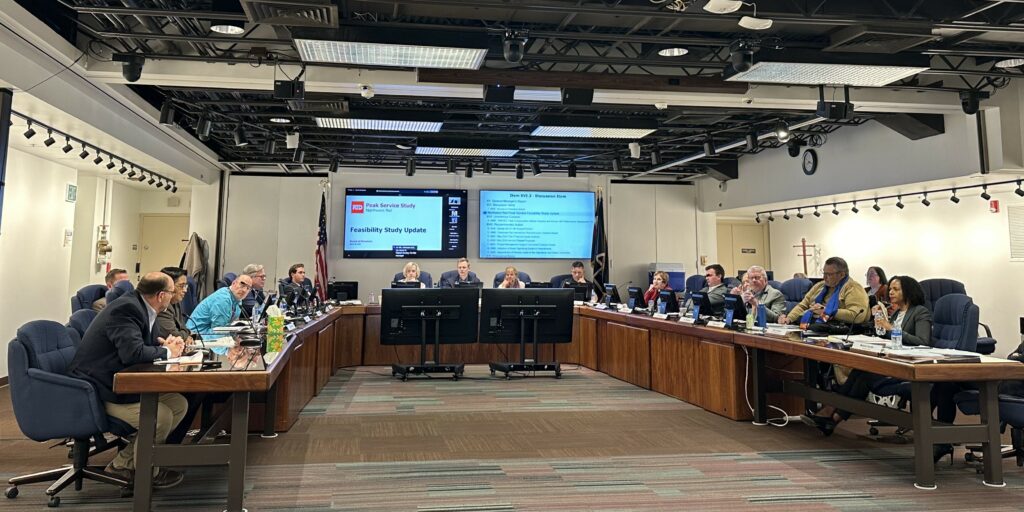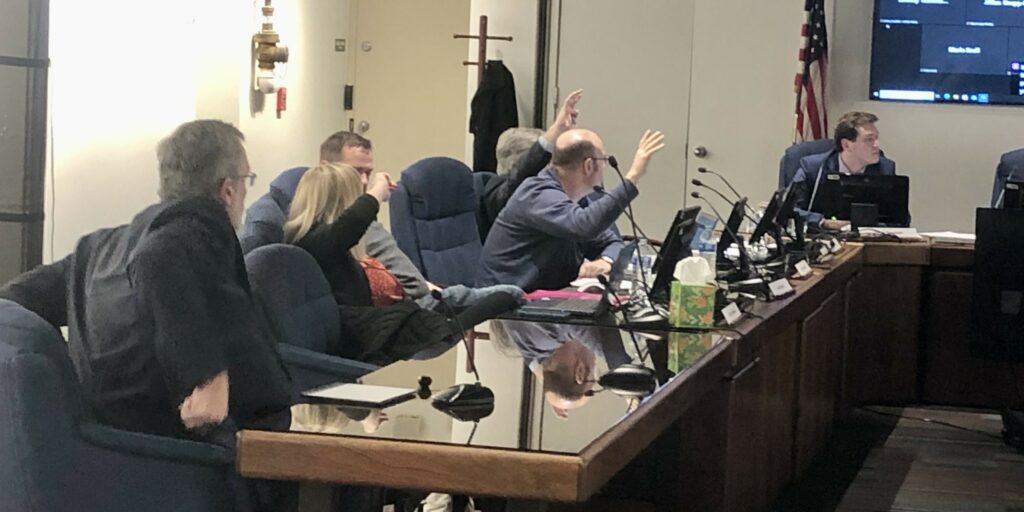GDT > RTD Info > Board of Directors > Board History
First, a little RTD history…
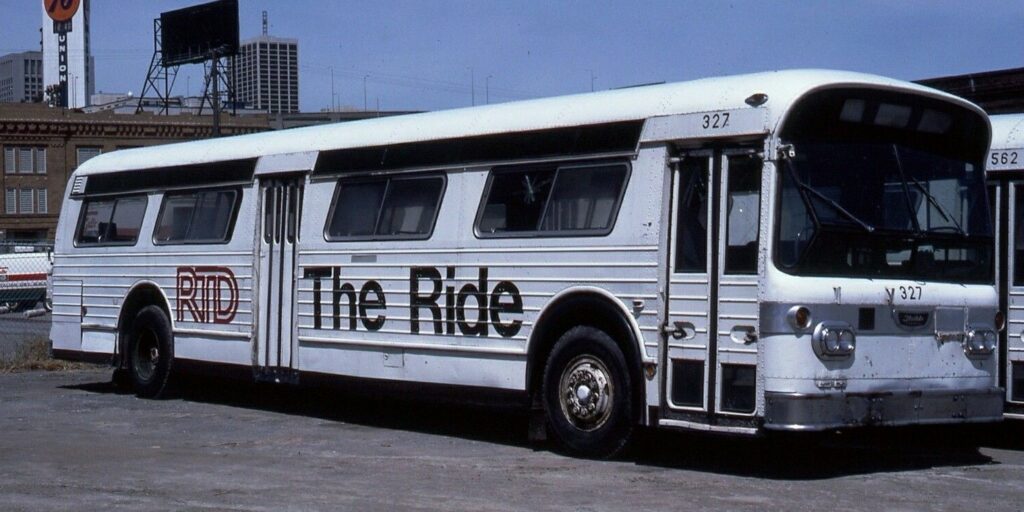
RTD was created in 1969 and acquired the assets of the bankrupt Denver Metro Transit in 1974, initially with an appointed Board of Directors. However widespread dissatisfaction with the appointed board at the time caused a measure to be passed in 1980 to transition to an elected one. The current elected board with district representation started work on Jan 1st 1983.
The appointed board was incompetent…
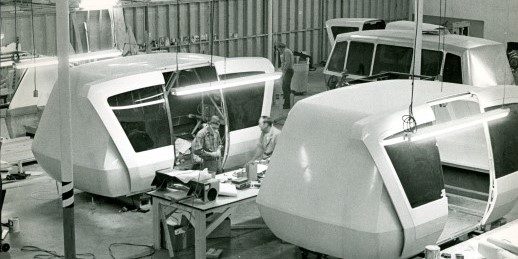
In the 1970s, peer cities to Denver were planning and constructing subways, metros and light rail. However the appointed board chose to pursue an untested personal rapid transit (PRT) system that was ultimately scrapped after Federal funds for development were withdrawn. It took the elected board 20-years later to build fixed-guideway (rail) transit with the opening of the light rail in 1994!
The appointed board was unaccountable…
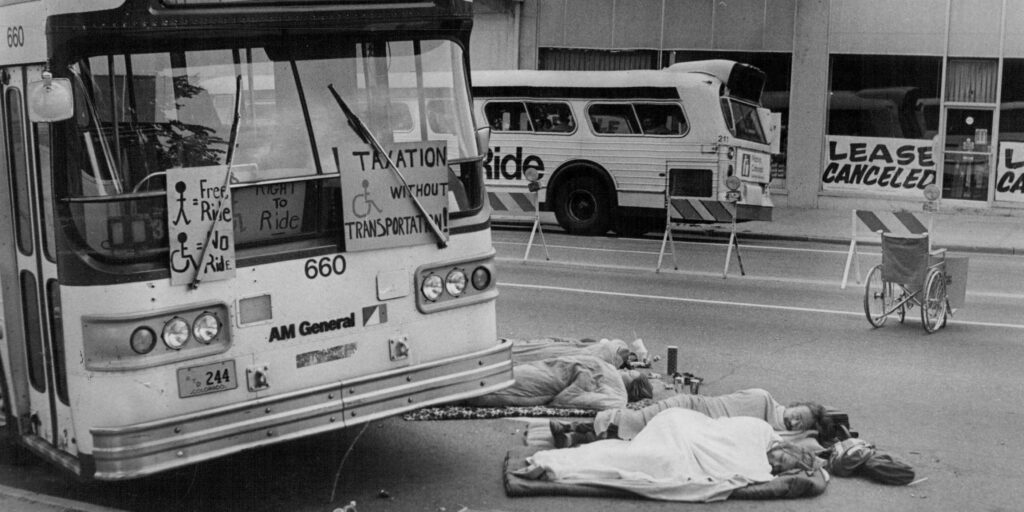
In an episode of extraordinary tone-deafness, the appointed board refused to include wheelchair lifts in an order for 83 new buses which led to the “Gang of 19” protesting by chaining wheelchairs to buses and lying down in the street for days.
The appointed board was corrupt…

Leasing a private jet to attend a national transit meeting and approving the gift of a fully-equipped Winnebago RV to the board chairman from the 16th Street Mall contractor were two of the things the appointed board allowed public funds to be spent on.
Size matters…
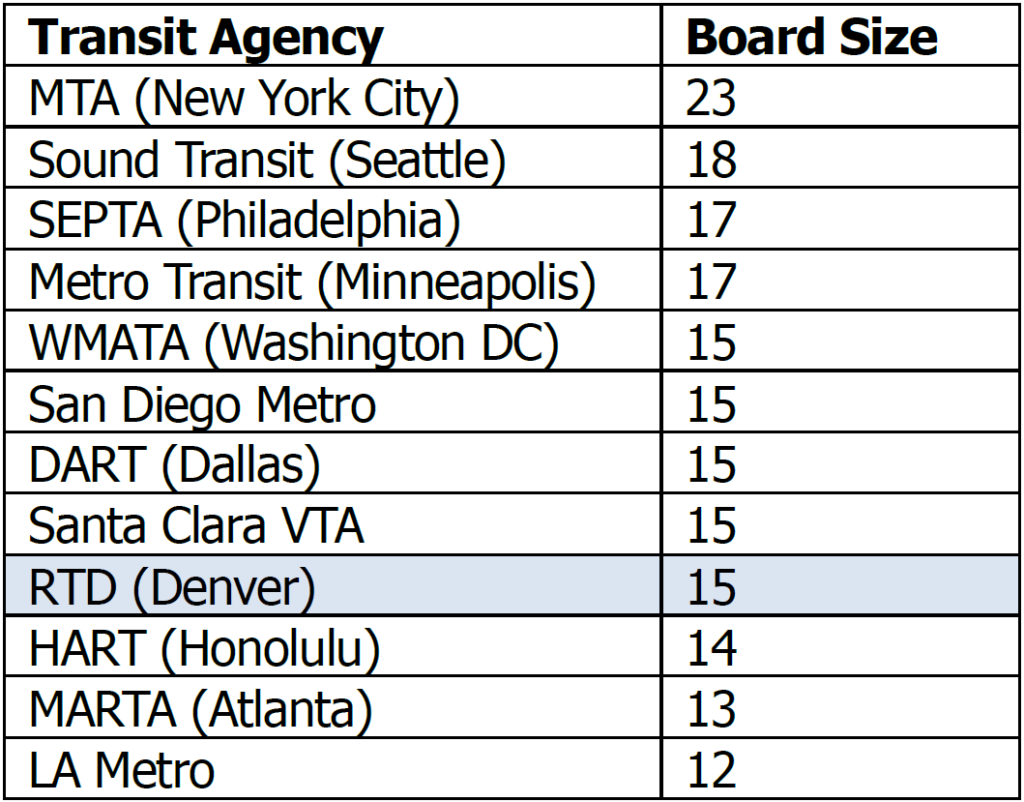
While some critics of the current structure point to transit agency boards being made up of an average of 7 directors, this includes a lot of the smaller agencies that just run fixed bus routes and a couple of paratransit vans. For a multi-modal (i.e. bus and rail) transit agency of RTD’s size, 15 directors is appropriate when you compare it to its peers.
Part of the reason the agency is in a mess is because of the Board…?
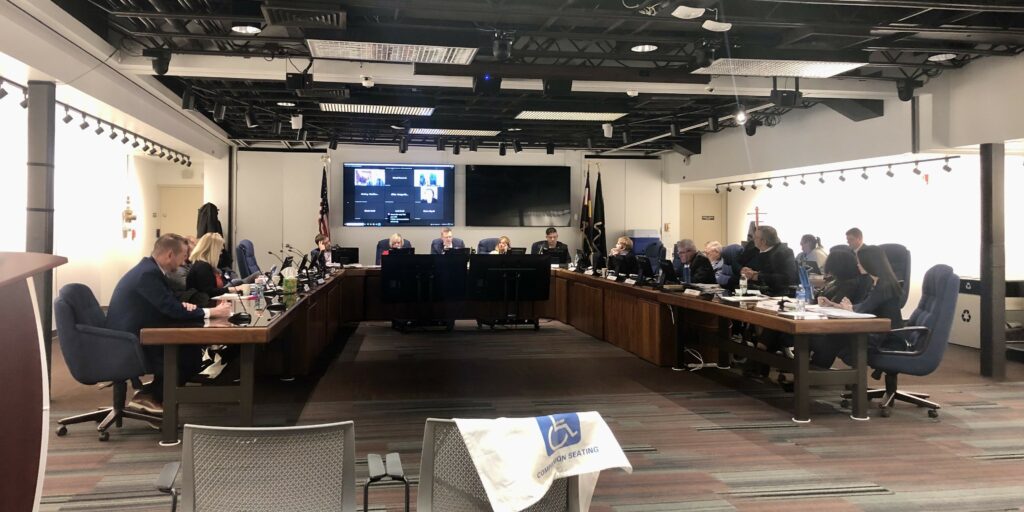
The RTD Board needs to move beyond being seen as simply a “rubber stamping” device for staff’s initiatives. Directors should be expected to devise, consult on, discuss and implement policies to improve RTD from a rider and / or employee perspective. But it should always be remembered that, if public doesn’t like the policies and governance efforts of the board, they can vote Directors out!
The current board is representative of the districts RTD serves…
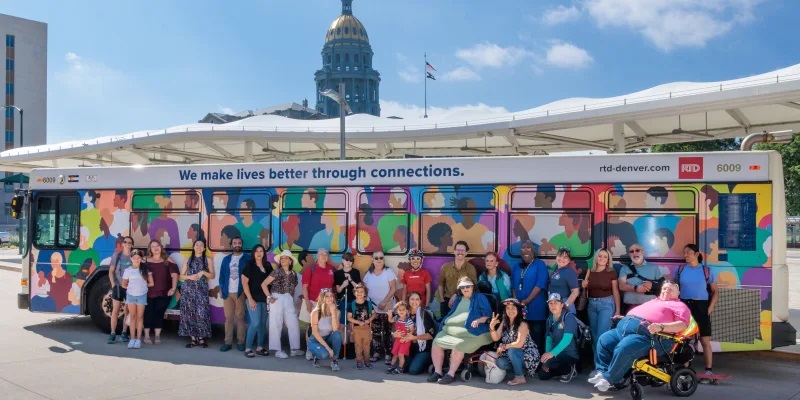
As part of their duties, RTD Directors perform a key transit liaison role within their communities. This is helped by it being easier for candidates from minority neighborhoods to stand and win election to the Board for their district. The current system minimizes community disenfranchisement and promotes representation.

